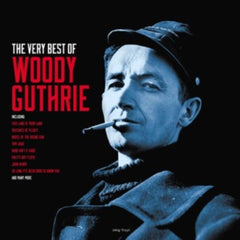
Woody Guthrie
Woody Guthrie is the epitome of the American troubadour, a folk icon whose lyrics have echoed through generations. Born in Okemah, Oklahoma in 1912, Guthrie's musical career took off in the tumultuous 1930s, where his songs became anthems for the working class. With his signature guitar adorned with the words "This Machine Kills Fascists," Guthrie's music was a call to arms for social justice.
His sharp wit and rebel spirit shone through in tracks like "This Land Is Your Land" and "Talking Dust Bowl Blues," capturing the essence of a nation in turmoil. Guthrie's influence can be felt in the music of Bob Dylan, Bruce Springsteen, and countless others who have followed in his footsteps.
But Guthrie's legacy extends far beyond his music. With his signature cowboy hat and harmonica, he was a cultural icon, a symbol of resistance and resilience in the face of adversity. His influence on the American music landscape cannot be overstated, and his legacy continues to inspire artists all over the world.
Woody Guthrie may have passed away in 1967, but his spirit lives on in every protest song and every folk ballad. His music remains as relevant today as it was during the Great Depression, a testament to his enduring power as a storyteller and a songwriter. So hats off to Woody Guthrie, the man who gave voice to the voiceless and hope to the hopeless.



